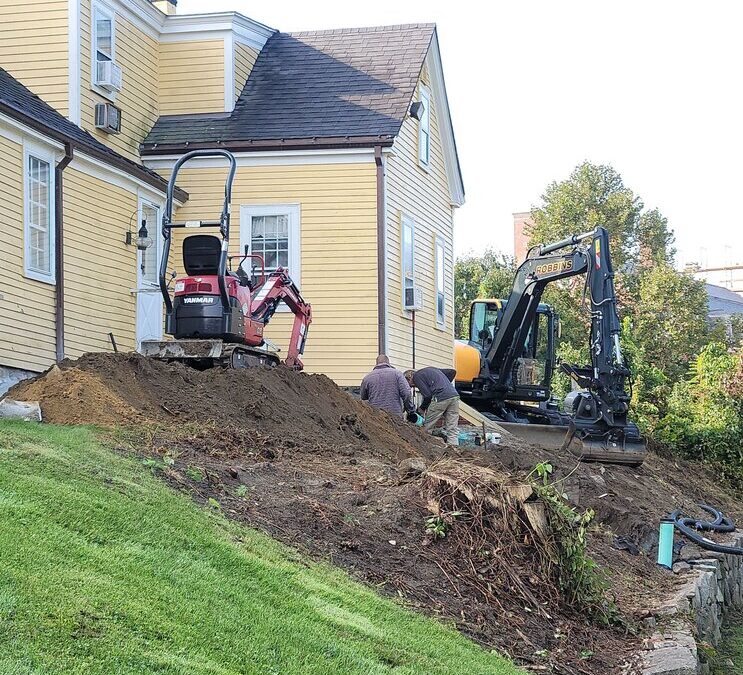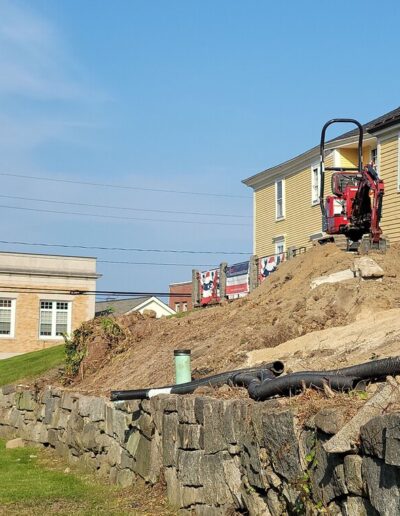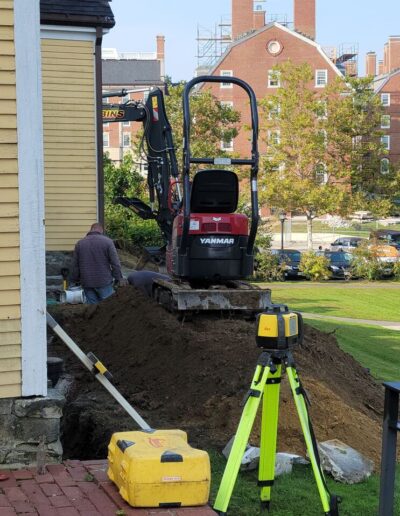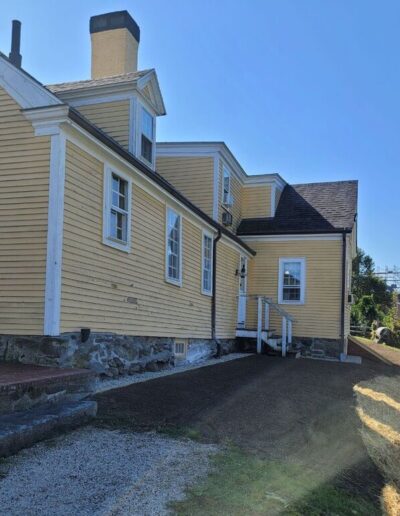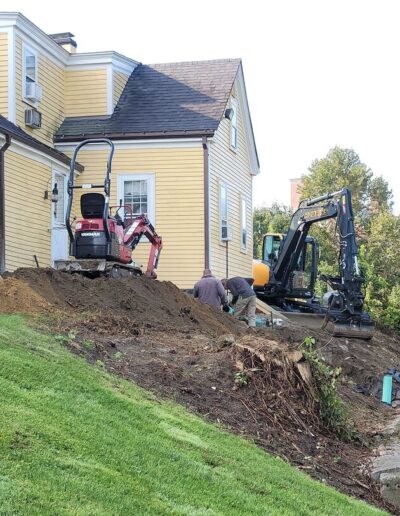While developing various educational and family-friendly programs, the American Independence Museum (AIM) is also charged with caring for two 18th-century historic structures, a responsibility that recently entailed the successful conclusion of a drainage project.
Made possible by an anonymous donation and a grant from The Mcininch Foundation, the project represents the last phase of a moisture remediation project for AIM’s Ladd-Gilman House (1721) that began in 2019. “We have been able to connect the downspouts on the structure’s northerly side with an underground drainage system to the lower lawn event area behind Folsom Tavern,” said Rebeccah Seely, AIM Facilities Manager.
Connecting the downspouts to an underground system, according to Seely, will direct water away from the foundation and help to resolve ongoing water issues in the basement of the Ladd-Gilman House. “It also completes the perimeter drainage plan for the Ladd-Gilman House, which includes the installation of a stormwater drainage system on the south side of the building in 2019,” she added.
According to AIM Executive Director Jennifer Carr, the project underscores the continued need for funding at the museum. “These are more than just buildings,” she said. “These are tangible links to our past. They house our collection. They are the backdrop to programs and events. There is no substitute for experiencing buildings this old, this historic, in-person.”
Built in 1721, the Ladd-Gilman House is a National Historic Landmark property that was home to Nicholas Gilman, Jr., a signer of the Constitution. The home also served as Governor’s mansion when Nicholas’ brother, John Taylor Gilman, was Governor of New Hampshire. Their father—Nicholas Gilman, Sr.—served as the state’s first Treasurer.
Built in 1775 by Samuel Folsom, Folsom Tavern was visited by George Washington in 1789 and was the site of the formation of the New Hampshire chapter of the Society of the Cincinnati in 1783. The nation’s oldest patriotic organization, the Society was founded by officers of the Continental Army and their French counterparts who served together in the American Revolution.
“There is so much history here,” said Carr. “The only caveat is that it requires consistent support to maintain and continue to reinterpret it.”
About American Independence Museum
Located in Exeter, NH, the American Independence Museum features a rare collection of historic artifacts that shed light on the Revolutionary War. Examples of popular items in our exhibits include a dragoon pistol, brown bess musket, and 18th century powder horn. Many of our programs offer insight into civic duties, civic engagement and civic responsibility, while we also feature a variety of things to do in NH, such as camps for kids, festivals, summer festival, reenactments, and homeschool programs. Perfect for a day trip or weekend trips, we believe in inclusivity and inclusive history and the spirit behind the phrase, ‘we the people’.

